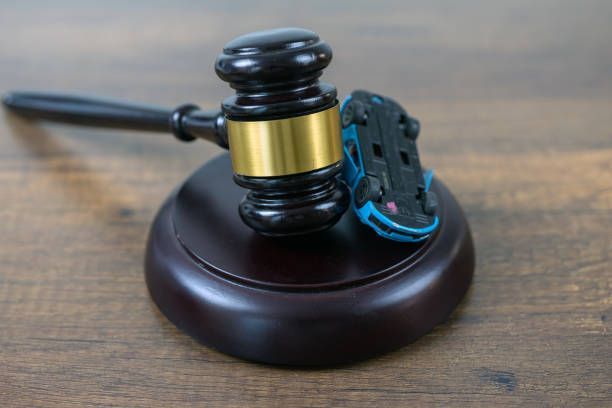Can My Lawyer Settle My Case And How Does The Settlement Process Work?
April 9, 2020
Can My Lawyer Settle My Case And How Does The Settlement Process Work?

Most personal injury cases are settled, usually without the need to file a lawsuit. A case can be settled at any time, but the earlier it can be settled, the better for you. An early settlement allows you to collect your money to compensate you for your injuries much sooner, the less you have to pay in attorney’s fees and expenses and you are spared the stress and uncertainty that is involved in any civil trial. At the Law Office of Paul R. Bennett we are experienced in dealing with personal injury cases of all types, know how to fairly evaluate their worth, and know how to apply pressure to insurance companies to get you the best settlement as soon as possible considering all the facts and circumstances in your particular case.
Not all cases are the same, but here are some of the basic steps that are involved in a settlement for any personal injury claim.
GATHERING THE FACTS
In your first meeting or consultation with us we will begin to gather the facts regarding your injury in meeting and talking with you. All consultations at the Law Office of Paul R. Bennett are free of charge.
How were you hurt?
Were there any witnesses?
Is there a police report, incident report, or investigation report into the incident which caused you to be hurt?
Is there any video of the incident?
Are there any photographs?
What hospitals and doctors have you seen for treatment?
How has your injury affected you and your family?
If we feel we can help you collect compensation for your injury, you will be asked to sign a contingency fee contract in order for us to begin representing you. Under this contract, you pay us no money for attorney’s fees or expenses unless we win your case. To win your case we must either settle your case for an amount of money that is satisfactory to you or try your case and obtain a jury verdict in your favor with an award of money damages. Then, and only then, we get paid a percentage of the settlement or jury award.
THE SETTLEMENT DEMAND
As soon as you have completed your medical treatment, we put together a package to be sent to the insurance company. This would include copies of your medical bills, medical records, photographs, videos, investigation reports, witness statements, proof of lost wages, and any other documents which would support your entitlement to compensation. This package is called a settlement demand and includes a letter from us explaining how you were hurt, how badly you were hurt, why you deserve to be compensated, and how much you deserve to be paid in compensation. We want to be sure that you recover reimbursement for all of your medical bills, lost wages, and other out-of-pocket expenses
you incurred. We also want you to be compensated for your pain and suffering, physical and mental.
Once the insurance company receives our demand package, the insurance company must respond within 30 days. Usually, the response comes in the form of a counter-offer where the insurance company is offering to pay you compensation, but less than the amount we have demanded on your behalf.
NEGOTIATIONS
Usually the first settlement offer made by the insurance company is not their final offer. We begin negotiating with the insurance company to find out what the top offer they will make to you to settle your claim. You will be kept informed throughout the settlement negotiations and no case will be settled unless you are satisfied with the amount being offered.
If you and your attorney feel that the final settlement offer to you is unfair - - or if the insurance company fails or refuses to make a settlement offer - - the next step is the filing of a lawsuit. This does not mean that your case can no longer be settled. Cases often settle after a lawsuit is filed. Settlement negotiations can take place at any time, even in the middle of a trial. Most often, after a lawsuit is filed, the cases are later settled in mediation.
MEDIATION
Most judges in Georgia require a mediation session be held before any case goes to trial in their court. A mediation is a face-to-face meeting attended by you, your attorney, the attorney for the insurance company, and insurance company representative and presided over by mediator. A mediator is usually a retired or still practicing lawyer or judge who is chosen by the parties to assist them in the settlement negotiation process. The mediator listens to both sides explain the case and then, after separating the parties, moves back and forth to talk to them in private and communicate new settlement offers. The mediator may also express an opinion to the parties on the value of the case as the mediator sees it. Mediations have become very popular now because of their high success rate in resolving cases after a lawsuit has been filed.
TRIAL
Going to trial is a last resort when your case cannot be settled. The decision to go to trial will only be made where the insurance company refuses to make an offer to settle your case or the offer they make is inadequate and unfair. If we recommend that you file a lawsuit, it is because we believe that we can collect more money for you from a jury than by continuing to work with the insurance company. The decision to go to trial will be yours to make after your attorney discusses the risks and benefits of placing your case into litigation.
Remember, our goal in representing you is to collect as much compensation for you as we can, considering all the facts and circumstances of your injury and your suffering. We promise to apply all our experience and energy toward that goal.











